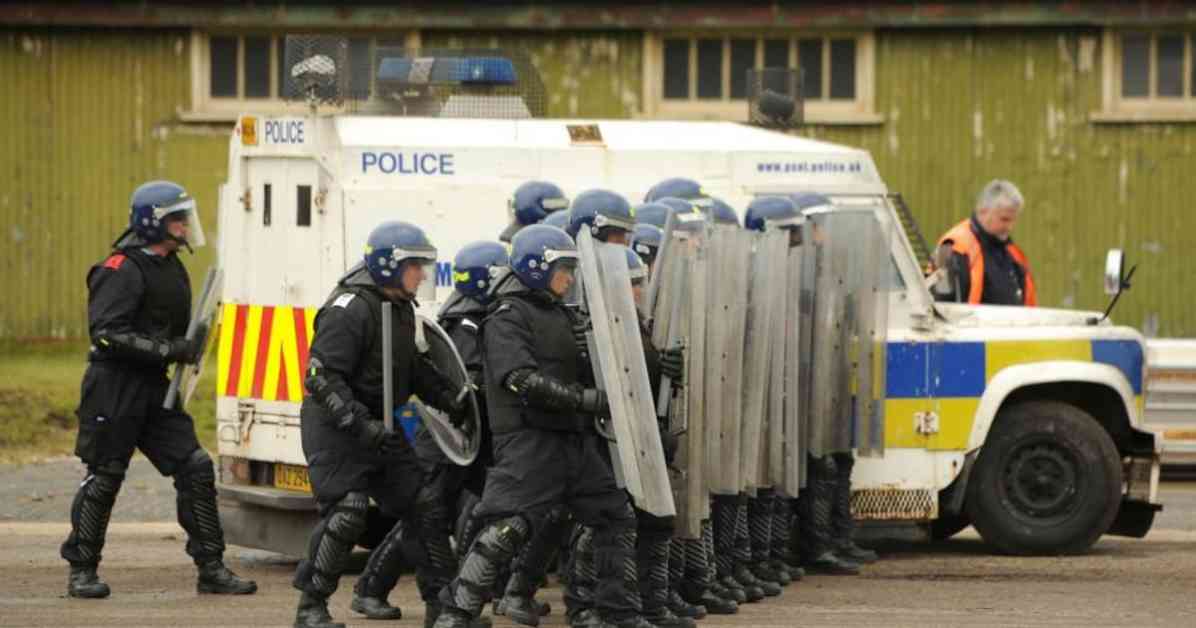The Police Service of Northern Ireland (PSNI) is facing a critical juncture as debates surrounding recruitment practices take center stage. DUP leader Gavin Robinson has called for the PSNI to move beyond what he refers to as the “craze of woke quotas,” urging a shift away from policies that prioritize religious background over merit-based selection. This comes in response to a suggestion to reintroduce a 50-50 recruitment policy, which was previously in place for Protestant and Catholic members until 2011. Robinson argues that such policies undermine meritocracy, deepen divisions, and fail to address the real challenges faced by the police force.
Robinson’s concerns were prompted by a mother who reached out to him, worried that her son may not secure a training place due to being “male, white, heterosexual and a Protestant.” This conversation comes at a time when PSNI Chief Constable Jon Boutcher expressed disappointment in the lower-than-desired number of Catholics applying to join the force. The latest recruitment campaign received approximately 3,500 applications, with only 27% identifying as Catholic. Currently, the PSNI has 6,300 officers, a number that Boutcher believes needs to increase to 7,000 to meet operational needs.
Challenges of Faith-Based Recruitment
In a recent address to DUP members, Robinson emphasized that policing should prioritize ability over religion. He criticized suggestions for the reintroduction of a 50:50 recruitment policy, highlighting the risks of selecting recruits based on faith rather than competence. Robinson believes that such practices could lower standards, deter talented individuals, and send the wrong message about the PSNI’s priorities. He stressed that no one should be denied an opportunity to serve as a police officer based on their religion or lack thereof. Instead, efforts should focus on addressing any existing barriers to Catholic recruitment through leadership within nationalism, without discriminating against other groups.
Robinson pointed out that the primary challenge facing the PSNI lies in overall recruitment and retention, rather than achieving religious balance among its officers. He noted that officers are leaving the force due to increased violence and job pressures, highlighting the importance of addressing these core issues. Robinson advocated for fair and open recruitment practices based on skill and dedication as the most effective way to build a trusted and efficient police force. He emphasized that the public has moved beyond the notion of woke quotas, and it is essential for the PSNI to follow suit in order to meet the evolving needs of the community.
Looking Towards a Balanced and Inclusive Future
As discussions surrounding the PSNI’s recruitment policies continue, there is a growing consensus that the focus should be on creating a diverse, skilled, and committed police force that reflects the communities it serves. While the issue of religious balance remains a point of contention, many agree that merit-based selection processes are crucial to ensuring the highest standards of professionalism and effectiveness within the PSNI. By prioritizing the recruitment and retention of qualified individuals based on their abilities and dedication, the PSNI can build a stronger foundation for community trust and collaboration.
In conclusion, the PSNI faces a complex challenge in balancing the need for diversity and inclusivity with the demands of maintaining a skilled and effective police force. As the debate unfolds, it is crucial for stakeholders to consider the long-term implications of recruitment policies and strive towards solutions that prioritize merit, professionalism, and community engagement. By embracing a holistic approach to recruitment and retention, the PSNI can navigate these challenges effectively and continue to serve the people of Northern Ireland with integrity and excellence.












